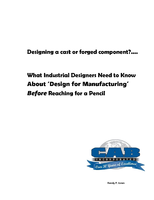Modular rPET Production System supplies entry level production capacity.
Press Release Summary:
With footprint of 1,000 ft², Recycled Polyethylene Terephthalate System uses virtually no water and only 2.3 million kWh of electricity annually. Small capacity system can produce up to 4 million pounds of rPET annually. LNO(TM) process, relying on extremely small particle size technology, enables efficient decontamination and produces rPET with optimal color and yield, suitable for variety of food and beverage applications and various package types.
Original Press Release:
Phoenix Technologies Reengineers Modular rPET System to Enable Cost-effective Self-manufacture for Brand Owners, Others
Bowling Green, Ohio - Phoenix Technologies, a long-time producer of recycled polyethylene terephthalate (rPET), is now making a small-capacity version of its proprietary compact, modular equipment available for those interested in self-manufacture.
The cost of entry for the new, small capacity system (4 million pounds of rPET annually) can be as low as $1 million. With a footprint of 1,000 square feet, the unit is also significantly smaller than any other commercially-available rPET production equipment and can be built in a record-setting 160 days.
The new system is based on Phoenix Technologies' patented technology which has been in use since 2000 for the commercial production of food grade LNO(TM) rPET. The resin has received letters of no objection at up to 100% use from both the Food & Drug Administration and Canada Health.
"For years, Phoenix Technologies has sold this proven rPET resin to brand owners. What we've done now, is taken that large scale production unit and significantly reduced its physical footprint, capacity and price to enable self-manufacture. No other company is offering a unit with entry-level production capability. We believe this provides an affordable option for those that have found self-manufacture to be cost-prohibitive up until now," said Robert Deardurff, president, Phoenix Technologies.
In keeping with its strong environmental positioning, the unit uses virtually no water and only 2.3 million kilowatts hours (kwh) of electricity annually, vs. the 5 million kwh needed to run larger-capacity equipment. The modular design also can easily address growing capacity requirements by adding 4 million pound units to the base equipment.
"We think the reengineered system will be particularly attractive to brand owners who self-manufacture PET containers and who want to support a positive environmental profile. Self manufacture of rPET contributes positively to the carbon footprint and helps minimize time and labor costs," Deardurff said. "We also see it as ideal for recycling plants, retailers, municipalities, etc., which were previously blocked by capital investment, space and labor constraints," Deardurff said.
The LNO(TM) process relies on Phoenix's patented "extremely small particle size" technology. The tiny particle size enables much more efficient decontamination compared to other processes, resulting in faster output and significant energy savings.
LNO(TM) technology produces rPET with superior color and yield as compared to other methods. Further, it has lower acetaldehyde levels which positively impact taste properties. Another benefit is its higher intrinsic viscosity (IV) or molecular weight which more closely matches the IV found in virgin resins. This enables higher package performance.
"Color, yield and taste attributes have traditionally been stumbling blocks in producing viable rPET for incorporation at high percentages-particularly with very sensitive liquids, such as water. Our LNO(TM) process overcomes those obstacles," Deardurff said.
The resin is ideal for a variety of food and beverage applications including water, carbonated soft drinks, juices, fruit, baked goods, meats and cheeses. Package types include blow molded, thermoformed and injection molded applications such as bottles, drinking cups, deli containers, etc.
"Our philosophy is that rPET supply is better suited to multiple, smaller, processing operations vs. one or two large capacity plants. We believe in a local 'consume, collect, convert' approach. By locating rPET production in closer proximity to resin users, you improve supply times and reduce the carbon footprint," Deardurff said.
About Phoenix Technologies
Phoenix Technologies is a global leader in recycled rPET manufacturing. The company produces clean, consistent and high-grade rPET resin pellets from post consumer recycled plastic flake shipped from all over the world. As the foremost manufacturer of rPET, Phoenix sets standards for quality, technology, service and value. Phoenix Technologies is a member of Plastic Technologies, Inc., Holland, OH family of companies. For more information: www.phoenixtechnologies.net.




